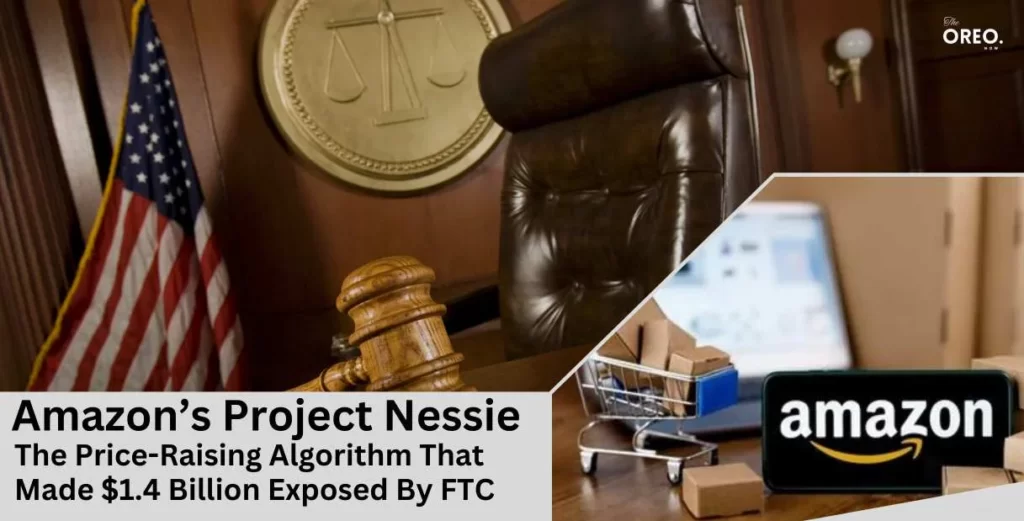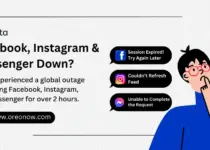Amazon’s Project Nessie: A Secret Algorithm For Price-Raising | Exposed

FTC antitrust trial lawsuit accused Amazon of using a secret algorithm called “Project Nessie”. Amazon’s Project Nessie is raising prices on other online sites. And guess how much money Amazon has raised with this project yet? More than $1 Billion. Yes, that’s a huge amount.
The algorithm worked by identifying specific products for which Amazon thought that if it raised its pricing, other retailers would follow suit. Amazon would then increase the price it was charging for those items, and when other retailers did the same, Amazon would not lower the price.
Amazon Used the Secret Project Nessie Algorithm and made an extra $1B
According to the FTC, Amazon used Project Nessie to generate over $1 billion in excess profits, $1.4 Billion (to be precise). In addition, the lawsuit alleges that Amazon erased Project Nessie-related internal correspondence on purpose while the FTC was looking into it.
Denying the FTC’s accusations, Amazon claims that Project Nessie was only a mechanism for controlling its own prices. However, Amazon’s market dominance and its potential for abusing it to hurt customers are major issues brought up by the FTC’s case.
What is Amazon’s Project Nessie?
Amazon’s Project Nessie is a secret algorithm used to drive up pricing on competing websites. The algorithm identified particular items for which Amazon anticipated that other retailers would follow suit in the event that Amazon increased its pricing. After that, Amazon would increase the price of those items, and when other retailers did the same, Amazon would maintain the higher price.
How did Project Nessie Work?
Project Nessie used various data points to predict how other stores would react if Amazon raised prices on a particular product, including:
- The prices of other stores
- The popularity of the product
- The competition for the product
- The cost of the product
Project Nessie would suggest a new price to Amazon whenever it found a product that it thought should be priced higher. After that, Amazon would determine whether to hike the price or not. If Amazon were to increase the price, it would do it secretly and without informing its customers.
How much money did Amazon make from Project Nessie?
According to the FTC, Amazon used Project Nessie to generate $1.4 Billion in excess profits. This indicates that Amazon profited more via Project Nessie than it would have by engaging in fair competition with other stores.
Why is Amazon’s Project Nessie important?
Project Nessie raises major concerns about Amazon’s market dominance and its ability to exploit that position to hurt customers, so it is important. Amazon already commands a large portion of the e-commerce industry, and Project Nessie has given them an even greater advantage over rivals.
Consumer prices may rise overall if Amazon is successful in using Project Nessie to increase pricing on rival websites. Project Nessie may potentially be used by Amazon to eliminate competition and force other internet retailers out of business.
What is the FTC doing about Amazon’s Project Nessie?
In order to stop Amazon from using Project Nessie and engaging in other anti-competitive behaviour, the FTC is requesting a permanent injunction. Along with other anti-competitive actions, the government is attempting to compel Amazon to surrender its earnings from Project Nessie.
What would be the potential legal consequences for Amazon?
- Injunctions against its use of Project Nessie and other anti-competitive practices
- Divestment of certain businesses or assets
- Monetary penalties
Project Nessie may have a big effect on customers. Overall costs for customers may increase if Amazon is successful in using Project Nessie to increase pricing on other online retailers. Project Nessie may potentially be used by Amazon to suppress rivalry and force other online retailers out of business, thereby limiting the options available to customers.
The FTC’s lawsuit against Amazon could also affect other tech giants. If the FTC is successful in its lawsuit against Amazon, it could send a strong message to other tech giants that they need to be careful about how they use their market power. Let’s see what happens with this trial, till then stay connected with Oreonow.



